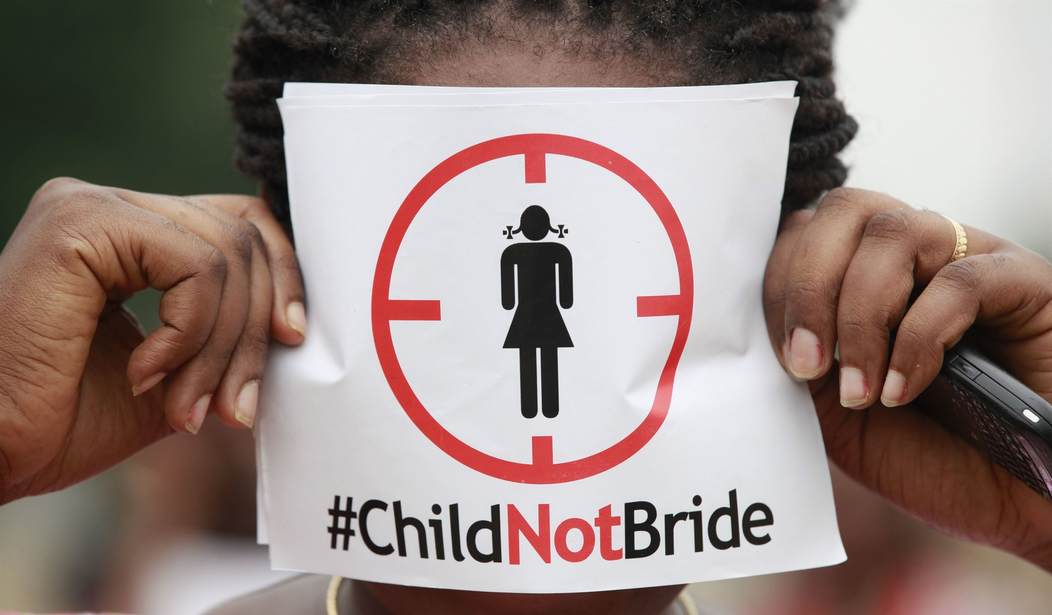The Maryland state assembly certainly had a busy session this year for the ninety days they gathered, and that’s definitely an understatement. The Assembly passed a staggering 783 bills over three months, with nearly all of them being signed into law by Governor Larry Hogan or passing after Democrats overrode his vetos. Some of them went into effect over the summer, while hundreds more kicked in this weekend. As you would expect in a blue state, some of the laws were rather banal, dealing with traffic safety and related issues. Others were more damaging, such as one that imposed stiff new “security” requirements on gun store owners. (Hogan vetoed that one, but the legislature overrode him.) But the controversial one that stuck out for me as I reviewed the latest batch involved changes to the state’s marriage laws regarding youths. For a very long time, the state’s minimum age for marriage has been 15, with limits set for how old the other partner could be. Now the age is being moved up to 17 in almost all cases with insufficient provisions for young people facing more extraordinary circumstances. (Baltimore Sun)
Advocates against child marriage had tried for years to raise Maryland’s minimum marrying age of 15.
“This change was long overdue to protect Maryland’s children and to end the state’s reputation as a destination for child marriage,” said the Tahirih Justice Center, a national nonprofit organization seeking to eliminate child marriage, in a statement after the bill’s passage.
The new law raises the age to 17, allowing a 17-year-old to marry only if each living parent or guardian gives consent or, in the case of a female, if she is pregnant or has given birth.
The entire issue of child marriage is one that I’ve been harping on for many years while recognizing that the situation is complicated, to say the least. The choice to marry, while generally admirable and a positive force for society is a big decision requiring written or implied consent in multiple ways for both parties. It’s generally understood that children are unable to provide informed consent under the law for pretty much anything. (With the current exception of having their genitals permanently mutilated if they claim to be transgender, apparently.) So freely allowing marriage at 15 can easily be seen as being problematic from that perspective.
But at the same time, this is a rather modern notion that conflicts with traditional family practices. Up until the second half of the twentieth century, couples commonly wed when they were in their mid-teens, particularly in rural, farming areas. We can debate the wisdom of that if you like, but it was definitely something that happened. My own grandparents on my father’s side wed at 16 and 15 and they were together until my grandmother passed away at the age of 96.
But all of these scenarios cover cases where the couple was appropriately close in age. The situation looks markedly different when a 15-year-old girl is suddenly betrothed to a guy in his late twenties, thirties, or beyond. (And it’s almost always the guy that is older.) While understanding the old saying about the heart wanting what it wants, those situations simply smack of pedophilia, particularly if the parents object, so some regulation clearly appears to be in order.
Exceptions for younger teens to marry if the age gap isn’t too great, commonly known as “Romeo and Juliette laws,” can do an admirable job of addressing those concerns and Maryland’s new law at least does that much. But the restrictions being applied mean that not everyone finding themselves in such a situation will qualify. Under these rules, no 16-year-old could get married – even to another 16-year-old – unless the female member of the couple is pregnant or has already delivered a child. That would be the case even if the parents or guardians of both of them were supportive of the marriage. (And while we’re on the subject, how are Maryland Democrats defining something that only applies to females when they are apparently unable to define what a woman is? They’re not all biologists, after all.)
It’s true that exceptions are being allowed in the case of pregnancy, but that’s not the only situation where younger teens and their families may believe that getting hitched is the most prudent path forward. And if all parties are in agreement and there is no indication that a child is being forced or coerced into marriage as a fig leaf to cover pedophilia, is it really the state’s business as to whether or not they can tie the knot? As I said, some of the facets of this new law make sense and should provide needed protections. But there still seem to be too many restrictions in this law and it could really use another pass.








Join the conversation as a VIP Member